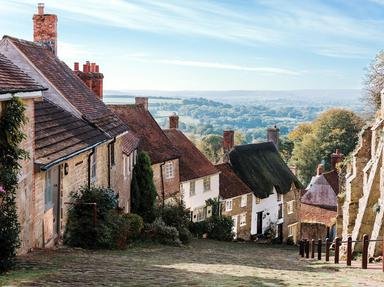Quiz Answer Key and Fun Facts
1. Which English city hosts an annual travelling fair called the Goose Fair, the history of which goes back to the thirteenth century?
2. For 37 years the playwright Alan Ayckbourn was artistic director of a theatre in which most of his plays were premiered. In which seaside town could you visit this theatre?
3. There can't be a quiz about England without a question on the Bard of Avon. So, according to Shakespeare, which English king exhorted his troops into battle with the rallying cry "Once more unto the breach, dear friends"?
4. Though his name doesn't sound English, the composer of the "Planets Suite" was born in Cheltenham in 1874. Who was he?
5. Talking of Cheltenham, which famous horse race, known as the Blue Riband of National Hunt racing, takes place there every March?
6. In which English county could you have lunch at the actual Jamaica Inn which was the location of a novel by Daphne du Maurier? The novel was the basis of a film by Alfred Hitchcock.
7. If you wanted to watch football (soccer) at Anfield Stadium or horse racing at Aintree, which English city would you have to visit?
8. On a visit to Oxford you may find yourself at the University sports facility at Iffley Road where, on 6 May 1954, a great sporting achievement took place. What was it?
9. Where in London are most of the annual Promenade Concerts held every summer?
10. When, in 1938-1939, the archaeologist Basil Brown excavated several mounds at Sutton Hoo in Suffolk, he made a remarkable discovery. What was it?
11. What name is given to the examination that you must pass in order to gain a licence as a black cab taxi driver in London?
12. Some towns in England are associated with particular foods. Which kind of food is named after Melton Mowbray in Leicestershire?
13. Which English city is named after the person believed to be the first British Christian martyr, executed while the city had the Roman name Verulamium?
14. England has ten National Parks scattered across the country. Which one is the largest?
15. Which city was home to each of these groups: the Hollies, Freddie and the Dreamers and Oasis?
16. Queen Elizabeth I of England died childless in 1603. Who was the mother of her successor, James I?
17. In 1881 Richard D'Oyly Carte built the Savoy Theatre in London to host productions of the comic operas of which dramatist and composer?
18. One city in England hosts Henry VIII's warship "Mary Rose" and Nelson's flagship "Victory" as well as the birthplace of Charles Dickens. Which city is this?
19. A town on the coast of Norfolk is renowned for its local delicacy of crabs. These local crabs are prized as they have a larger proportion of white meat than usual. Which of these towns specialises in these crabs?
20. Which folk song from Yorkshire warns the singers' friend of the consequences of going courting without a hat?
Source: Author
Quizaddict1
This quiz was reviewed by FunTrivia editor
agony before going online.
Any errors found in FunTrivia content are routinely corrected through our feedback system.

